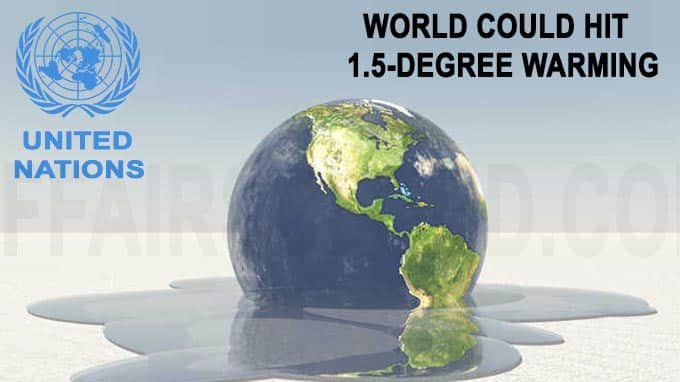The next five years may be witness to global average temperatures of 1.5 degree Celsius above pre-industrial levels (defined as the average of global temperatures between 1850-1900), according to a recent World Meteorological Organization (WMO) report. There is a 20 per cent possibility of the event.
This is significant as the countries under 2015 Paris Agreement had agreed to try and limit the average rise to below 2°C by the end of the century.
The last five years have already been the warmest ever recorded, according to WMO.
The report, The Global Annual to Decadal Climate Update, also said the global average temperature rise would very likely be above 1°C in each of the next five years. The range of rise is likely to be between 0.91 and 1.59°C.
The forecast for global temperatures in the next five years showed a significant upward trend when compared to the temperatures in the recent past, which is considered to be between 1981 and 2010. Between 2020 and 2024, all regions of the world, except the southern oceans, are likely to be warmer.

The period will also witness an increase in the number of storms in the European region.
In 2020 alone, the temperatures over large land areas in the northern hemisphere may be 0.8°C more than the recent past. The Arctic region in specific might warm up at more than twice the rate as compared to global average.

The temperature rise in the Arctic has a cascading effect on the weather patterns around the world through the disruption in the Arctic jet stream, especially with respect to extreme weather events like heat waves, cold waves and extreme rainfall events leading to floods and landslides.
For instance, in India, the increasingly wavy nature of the Arctic jet stream affects the western disturbances which bring winter rainfall to north-west, northern and north eastern regions of the country.
Reference- Down To Earth, The Global Annual to Decadal Climate Update Report, NOAA website, WMO website








